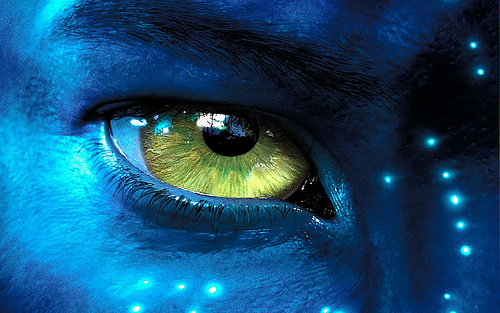This article was originally published in Common Dreams.
 Like Barack Obama, Avatar has become a Rorschach test for the times in which we live. Everyone interprets it their own way. Nominated for nine Oscars, it’s already the highest-grossing film of all time-having pulled in around $2.5 billion globally. More importantly, Avatar could become a game-changer in our evolving cultural consciousness about the impact of modernity on the world.
Like Barack Obama, Avatar has become a Rorschach test for the times in which we live. Everyone interprets it their own way. Nominated for nine Oscars, it’s already the highest-grossing film of all time-having pulled in around $2.5 billion globally. More importantly, Avatar could become a game-changer in our evolving cultural consciousness about the impact of modernity on the world.
I recently saw the film in St. Louis with my teenage niece and nephew. To them, it was science fiction. I suggested it was more of a commentary about the Americas. Indeed, it mirrors the history of indigenous peoples in this hemisphere for the past 500 years. The struggle over resource extraction for profit versus the territorial rights of indigenous peoples continues to unfold on a daily basis across the globe.
Set in the year 2154, the conflict in Avatar involves corporate lust for a rare precious mineral called “unobtanium,” which, we’re told, is valued by humans at 20 million per kilo. What’s it for? We’re never told, but perhaps that’s the point. Unobtanium serves as a generic placeholder for the commodities we extract from native lands: oil, gold, silver, lumber, pasture or any other thing of value according to market forces. How much unobtanium is enough? The film’s characters never say. But, like a bonus-grubbing Wall Street executive, no amount can satiate modern society’s never-ending desires.
I receive several urgent action alerts every month from indigenous communities throughout the hemisphere, asking for help as their lands are invaded by corporations, farmers, and ranchers. Centuries of racism have turned them into nuisances to be pushed aside by the colonizers. They don’t vote in a significant bloc, so local politicians rarely pay attention to their pleas. If they happen to use force to resist the exploitation and illegal expropriation of their lands, they-like Avatar‘s Na’vi protagonists-are often labeled “terrorists” and violently suppressed. In reality, indigenous peoples across the Americas have been fighting against terrorism since 1492.
I asked my niece and nephew to think back a dozen generations. Who populated the lands upon which they live today? What happened to them? Under what circumstances were their lands colonized? Deep down, we know about terrible wrongs that were committed against the native peoples who used to inhabit this land, but we push these traumas out of our collective consciousness. Until we come to terms with our own history, it will continue to fester like a rotting pink elephant in our national living room.
The Na’vi in Avatar and indigenous humans here on Earth have accomplished something that we in the modern industrialized world have failed to do. They’ve figured out how to live in a sustainable way for countless generations. We, meanwhile, are quickly reaching the environmental limits of what’s sustainable.
Our technologies have advanced far ahead of our collective wisdom to incorporate them in a thoughtful way. We’ve surrendered our future to the market forces that have run amok, and where the only relevant bottom line is short-term profit. The elders of the Iroquois nations used to ask how the decisions they made today would affect their descendants seven generations down the line. Today we don’t turn to our elders for wisdom. After all, what do they know? They’re old. Put them in a retirement home.
Instead, our future is determined by cowardly politicians who can only think as far as the next election. Our economy is guided by short-sighted corporations that only care about hitting their quarterly numbers, lest their stock nosedives and they get taken over by a rival corporation. Any leader who talks about planning for the future is branded a “socialist” by the teabaggers-as though we should let our planet’s fate be determined by the tender mercies of the free market.
In the early 1980s, an indigenous leader from Guatemala came to the Inter-American Development Bank and spoke to its board of directors. He said: “Your bank, I don’t like it so much. It scratches where it doesn’t itch.” Avatar makes us pause to think of all the manufactured “itches” that comprise modern life. The movie left me ready to paint myself Na’vi blue.
